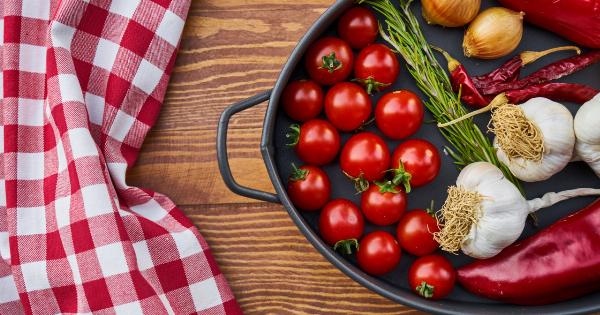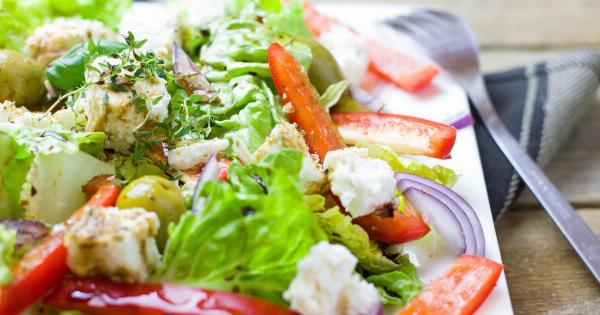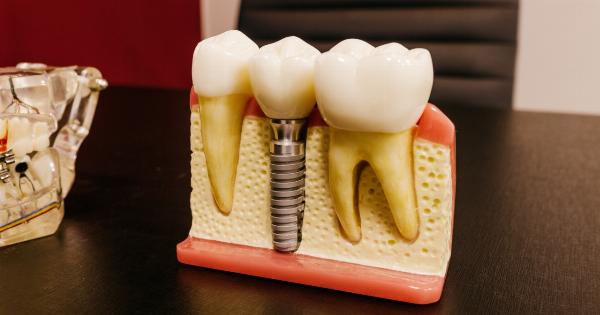Bad breath, or halitosis, is a common problem that can be both embarrassing and uncomfortable. It is caused by many different factors, including poor oral hygiene, certain medical conditions, and some of the foods we consume.
Below are 30 foods that can cause bad breath, along with some tips on how to prevent it.
1. Garlic and Onions
Garlic and onions contain sulfur compounds, which can cause bad breath. These compounds enter your bloodstream and are carried to your lungs where they are exhaled. The strong odors can linger in your mouth for hours after consumption.
2. Coffee and Tea
Coffee and tea can both cause bad breath. They contain caffeine, which is a drying agent. This can lead to a dry mouth where bacteria can grow and cause odor.
3. Alcohol
Alcohol can dry out your mouth, which can lead to bad breath. It also causes dehydration, which can further contribute to the problem.
4. Dairy Products
Dairy products can cause bad breath in a couple of ways. First, they can leave a film on your tongue, which can harbor bacteria. Second, some people are lactose intolerant, and this can cause an upset stomach, which can lead to bad breath.
5. Spicy Foods
Spicy foods like curry and hot peppers can cause bad breath. They contain compounds that can irritate the lining of your mouth and throat.
6. Sugary Foods
Sugary foods can cause bad breath because they feed the bacteria in your mouth that cause odors. This is especially true if they are not brushed away quickly.
7. Citrus Fruits
Citrus fruits like oranges and grapefruits can cause bad breath. They contain acids that can irritate the lining of your mouth and throat.
8. Tuna and Fish
Tuna and fish can cause bad breath due to the high levels of protein and amino acids they contain. These can be broken down by bacteria in your mouth, leading to odor.
9. Meat
Meat can cause bad breath in a similar way to fish. The protein and amino acids can be broken down by bacteria in your mouth, leading to odor.
10. Canned Foods
Canned foods can cause bad breath because they are often high in sodium. This can cause your mouth to become dry, which can lead to bacterial growth and odor.
11. Bread and Crackers
Bread and crackers can cause bad breath because they are high in carbohydrates. These break down into simple sugars in your mouth, which can feed the bacteria that cause odor.
12. Popcorn
Popcorn can cause bad breath because it can get stuck in your teeth. This can lead to bacterial growth and odor.
13. Energy Drinks
Energy drinks can cause bad breath because they are often high in sugar and caffeine. This can lead to a dry mouth where bacteria can grow and cause odor.
14. Protein Bars
Protein bars can cause bad breath because they are high in protein and amino acids. These can be broken down by bacteria in your mouth, leading to odor.
15. Vinegar
Vinegar can cause bad breath because it is acidic and can irritate the lining of your mouth and throat. This can lead to bacterial growth and odor.
16. Pickles
Pickles can cause bad breath because they are acidic and can irritate the lining of your mouth and throat. They can also leave a film on your tongue, which can harbor bacteria.
17. Soy Sauce
Soy sauce can cause bad breath because it is high in sodium. This can cause your mouth to become dry, which can lead to bacterial growth and odor.
18. Red Meat
Red meat can cause bad breath in a similar way to meat and fish. The protein and amino acids can be broken down by bacteria in your mouth, leading to odor.
19. Ketchup and Mayonnaise
Ketchup and mayonnaise can cause bad breath because they are high in sugar and vinegar. This can lead to bacterial growth and odor.
20. Protein Powder
Protein powder can cause bad breath because it is high in protein and amino acids. These can be broken down by bacteria in your mouth, leading to odor.
21. Smoothies
Smoothies can cause bad breath because they are often high in sugar and fruit. This can feed the bacteria that cause odor.
22. Ice Cream and Desserts
Ice cream and other desserts can cause bad breath because they are high in sugar. This can feed the bacteria that cause odor.
23. Peanut Butter
Peanut butter can cause bad breath in a couple of ways. First, it can leave a film on your tongue, which can harbor bacteria. Second, it is often high in sugar and can feed the bacteria that cause odor.
24. Processed Foods
Processed foods can cause bad breath because they are often high in salt and sugar. This can lead to a dry mouth where bacteria can thrive and cause odor.
25. Breath Mints and Gum
Breath mints and gum can cause bad breath because they often contain sugar and artificial sweeteners. These can feed the bacteria that cause odor.
26. Protein Shakes
Protein shakes can cause bad breath because they are high in protein and amino acids. These can be broken down by bacteria in your mouth, leading to odor.
27. Salad Dressing
Salad dressing can cause bad breath because it is often high in vinegar and sugar. This can lead to bacterial growth and odor.
28. Breaded Foods
Breaded foods can cause bad breath because they often contain flour and starch. These can break down into simple sugars in your mouth, which can feed the bacteria that cause odor.
29. Canned Tuna
Canned tuna can cause bad breath because it is high in protein and amino acids. These can be broken down by bacteria in your mouth, leading to odor.
30. Diet Soda
Diet soda can cause bad breath because it is often high in artificial sweeteners. These can feed the bacteria that cause odor.
Bad breath can be an embarrassing problem, but there are things you can do to prevent it. Brush and floss your teeth regularly, drink plenty of water to keep your mouth hydrated, and avoid foods that can cause bad breath.
If the problem persists, see your dentist or doctor to rule out any underlying medical conditions.



























